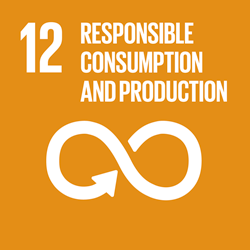Technological watch
Assessing the Applicability of Biodegradable Film Mulching in Northwest China Based on Comprehensive Benefits Study
Biodegradable film is a promising alternative to polyethylene film in arid regions, but its use is usually inhibited by its high cost and elusive effects on soil and crop yield. A two-year field experiment was carried out to explore the impact of biodegradable film on soil hydrothermal dynamics, yield, water productivity and economic benefits under three irrigation strategies (full, medium and low irrigation amount) compared with non-mulching and polyethylene film. The comprehensive benefits (economic, technical and ecological) of different film mulching patterns were evaluated using analytic hierarchy process and gray relational analysis methods. The results indicated that increasing irrigation amount could accelerate the degradation of the biodegradable film, with the highest film weight loss rate of 38.8% obtained under full irrigation. Film mulching could mitigate the negative impact of water deficit on crop yield, with the yield of biodegradable film and polyethylene film enhanced by 11.6% and 18.6% compared with non-mulching under low irrigation. Although polyethylene film showed the highest economic benefits, non-mulching showed the highest comprehensive benefits. Only when the price of biodegradable film material dropped to less than 1.37 times that of polyethylene film did the economic benefit of biodegradable film outcompete non-mulching and become a more acceptable and promising farming solution to boosting environmental sustainability.
Publication date: 25/08/2022
Author: Liyuan Bo
Reference: doi: 10.3390/su141710584






